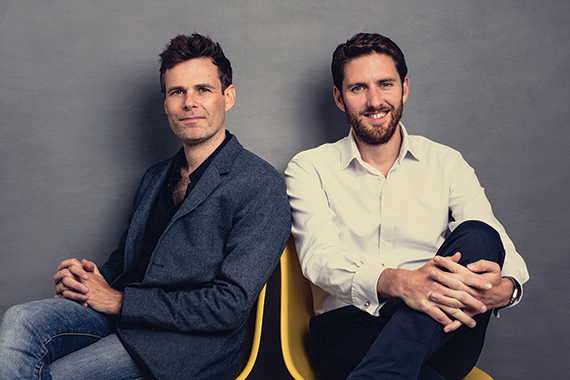
Cast your mind back to last January. As the annual post-Christmas forecasting began in earnest, proptech was in the mix – but only by the skin of its teeth. Competing with a cacophony of opinion and trends analysis around housing, politics and early signs of a shifting market, this time last year, technology was a murmur just nudging its way onto mainstream real estate radars.
What a difference a year makes. As 2017 gets under way, the ground beneath the market is shifting. As the industry focuses on staying ahead of the pack, growing revenue streams and being at the forefront of an increasingly digital world, proptech is emerging as a crucial enabler and is rapidly taking centre stage. It is a change no one is more attuned to than the companies operating on the tech side of the sector themselves, companies that have been trying for years to convince the wider market that the time has come to embrace digital change, companies like Realla.
Founded in 2014 by former British Land investment executive Andy Miles and Ian Parry, former chief technology officer and co-founder of residential search engine Globrix, the pair have created a commercial property search engine with a digital marketing tool that is fed not by stock requested direct from the agents, but by using crawling algorithms and machine learning to lift new availability from more than 1,000 UK property agent websites each day.
Here the pair discuss why, after more than two years of banging the drum for commercial proptech, the tide is finally turning as the property industry wakes up to the reality of digital future.
Game-changing acceleration
As far as 35-year-old Miles is concerned, it is more a case of what a difference three months can make, rather than a year. While proptech has been infiltrating the mainstream property sector for some time now – albeit painfully slowly in many cases – he says that the multi-million-dollar VTS/Hightower merger announced in December last year kick-started a game-changing acceleration in interest from the property side of the market.
“Commercial proptech has always been seen as a bit of a backwater,” he says. “But then you have a $300m (£247m) merger that hits the Wall Street Journal and suddenly the banks are looking at it seriously and then everyone wakes up a bit, including the property agents. It’s pretty exciting as that deal caught so much attention where there has previously been such blinkered vision.”
And there are other emerging trends underpinning this changing attitude towards tech that run deeper than the sudden jolt of a major deal.
These include the growing propensity for traditional agents to sidestep their way into proptech firms.
“There are two ways in: at the top, or through the 32-year-old partner who has grown up with tech”
The appointment of former Knight Frank agent Sebastian Abigail and former JLL agent Charlie Wade to Hightower and VTS respectively are just two examples. And Realla followed suit by bringing former JLL associate director Matt Glenny on board as business development director in December last year.
Miles adds that this is all part of a wider shift in proptech – specifically the fact that the sector’s influence is being naturally bolstered now that there are more people in their twenties and early thirties – those who are au fait with technology and digital innovation – in positions of power within major firms. If they aren’t jumping ship to join start-ups and tech companies, they are staying put on the inside – arguably an even more useful place for them to be.
By going via this next generation of decision makers, it is becoming far easier to market proptech to developers, agents and investors. But Miles says it is still sometimes difficult to get through to what he describes as “the frozen layer”.
“There are two ways into the big companies,” he says. “You either go right to the top as the chief executives are forced to be interested because they are answering to shareholders and looking at what everyone else is doing. Or you go to the 32-year-old partner who has grown up with tech. When you get to people over the age of 35, it can get tougher.”
Navigating the frozen layer
In the case of Realla – which raised £1.5m in funding from a group of property and tech investors led by the Kirsh family office and Lloyd Dorfman’s Esselco in June last year – so far it looks as though they are not having too much trouble overcoming that frozen layer danger zone.
But then, on the tech side of the operation Parry, 41, has form. At Globrix, he was the driving force behind a search engine that grew to have 2m users within 18 months of launching. Realla has 40,000 unique visits a month and between 70,000 and 90,000 sales and lettings available at any one time.
And now the development team is focusing on perfecting the marketing side of the offer, effectively a set of automation tools that can be sold to agents already using the search function.
“By using the algorithms and machine learning, we can help landlords create PDF marketing brochures and digital marketing campaigns,” says Parry. “We can have them done and out within an hour. It’s cost-effective and digital and we can track them and see who has been looking and then report back to the landlord.”
“It’s a move away from e-mail spamming,” adds Miles. “At the moment, agents send e-mails to everyone over and over again. Our view is to have far more targeted deal flow. So you can look and see what is relevant to current tenants. It would be a move away from identical PDF brochures which people spend huge amounts of time and money on.”
Not so silly
What started off as a “silly boyhood dream” of going it alone with an independent company, the Realla duo are not looking so silly now. With a plan to grow its sales team in 2017 and support from heavyweight financial backers, there have even been murmurs that they might take advantage of a good market for proptech and innovation and go out for more funding in the next few months.
It makes sense. Never before has proptech been so high on the commercial property agenda. And that is no mean feat at the start of a year already dominated by fears around major political, economic and market disruption.
Just 12 months ago proptech was a murmur nudging its way onto mainstream real estate radars. Now it looks set to cut through a lot of the noise in what is anticipated to be one of the most volatile years – last year’s annus horribilis aside – global property has seen since the end of the last cycle.
What a difference a year makes.











